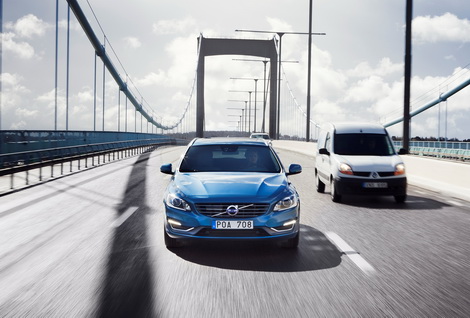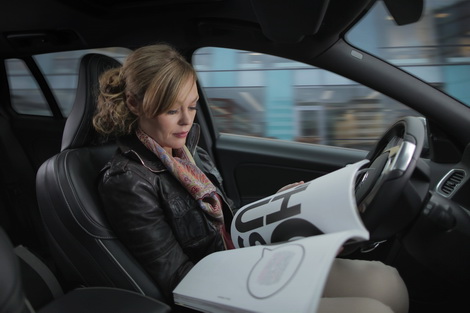What's the news?
Volvo's self-driving cars are getting nearer and nearer to becoming a disturbing reality, as the next major aim of the Swedish company's 'Drive Me' project is to get 100 of these autonomous vehicles into the hands of customers, on selected roads around Gothenburg, by 2017.

"We are entering uncharted territory in the field of autonomous driving," said Dr. Peter Mertens, Senior VP for Research and Development of Volvo Car Group. "Taking the exciting step to a public pilot, with the ambition to enable ordinary people to sit behind the wheel in normal traffic on public roads, has never been done before."
Drive Me is now in its second year and represents a collaboration between legislators, transport authorities, a major city and Volvo. The car company's noble over-riding goal is to have a future in which cars no longer crash.
Volvo's Autopilot system includes failsafe checks and enough hardware to ensure it can fully take over every aspect of driving, but even so the Swedes are hedging their bets - the first cars will drive autonomously on chosen roads, with no oncoming traffic, cyclists or pedestrians allowed. This is because Volvo predicts that the human sat in the 'driving' seat won't necessarily intervene if anything goes wrong with the Drive Me set-up.

"Making this complex system 99 per cent reliable is not good enough. You need to get much closer to 100 per cent before you can let self-driving cars mix with other road users in real-life traffic," explained Erik Coelingh, Technical Specialist at Volvo. "Here, we have a similar approach to that of the aircraft industry. Our fail-operational architecture includes back-up systems that will ensure that Autopilot will continue to function safely even if an element of the system were to become disabled."
Volvo cites the brakes as an example, saying the self-driving cars will have two independent brake systems to bring the machine to a halt, so that in the very unlikely event that the primary brakes fail then the secondary set-up will kick in.
Anything else?
Volvo reckons that, beyond the obvious benefit of taking the strain off commuters, the Drive Me cars could cut fuel consumption and improve traffic flow. Whether that proves to be the case or not, it seems we're only going to have to wait two years to find out what happens when the machines take over...
